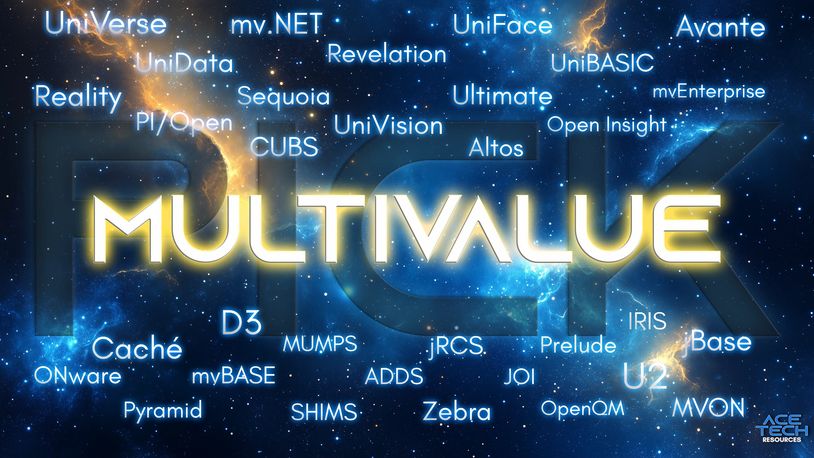Pick / MultiValue

Our Quest
At ACE Tech Resources, our passion for MultiValue runs deep. For over 30 years, we've immersed ourselves in the dynamic world of Pick MultiValue programming technology. Our unwavering dedication lies in fortifying and championing the future of MultiValue.
We are more than just an employment agency. We work hard to bolster and support the Pick Multivalue community, which includes programmers, engineers, developers, and companies utilizing these technologies
What is PICK?

PICK is a MultiValue database management system, operating system, and programming language with origins dating back to the late 1960s. It was originally developed for use on minicomputers and was popular among businesses for its ability to handle large amounts of data efficiently.
One of the key features of PICK is its use of a MultiValue data model, which allows each record in the database to have multiple values for each field. This makes it well-suited for applications that deal with complex data structures, such as inventory management and accounting systems.
PICK also includes a unique command language that is used to interact with the database. This language allows users to manipulate and query data in powerful ways, and it has been widely adopted by developers who work with PICK systems.
Some noteworthy systems are Rocket UniVerse, UniData, D3, jBASE, and OpenQM While these are most popular, there still exists many other programs that use MultiValue systems.
Learn about other MultiValue Programming languages.
MultiValue Job Openings
Check out our current job openings
Want to learn PICK?
Pick/MultiValue
Pick/MultiValue
Pick/MultiValue
Learn from the best, Jonathan E. Sisk, a pioneer in the PICK training and documentation industry. His significant contributions have shaped the MultiValue landscape. At jes.com you gain access to a wealth of documents dedicated to the Pick MultiValue D3 database, offering a rich resource for anyone looking to delve deeper into this unique data management system.
Rocket Software
Pick/MultiValue
Pick/MultiValue
Rocket Software provides an enriching learning platform where you can deepen your understanding of various programming systems like UniVerse and Unidata. With a curated selection of comprehensive courses, you can follow along at your own pace, expanding your knowledge and skillset in the realm of MultiValue systems and beyond.
Explore various MultiValue systems in our blog posts
Copyright © 2025 ACE Tech Resources - All Rights Reserved.